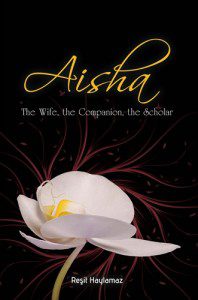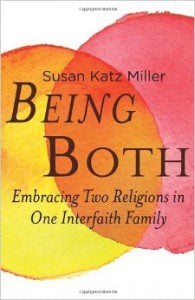 |
|
Well, not him personally
|
John Updike is among the senior writers of the American literati and has been for more than three decades. His books are frequently mentioned as among the most important American literary works of the last half of the 20th century, and his essays and critiques are read with seriousness. I’ve read a few of his short stories, but I confess to not pursuing any of his 20 plus novels beyond the first 50 pages or so. He’s an experienced author, a keen observer (an accomplished “noticer” as critics have said), a man with stories to tell, but a narrator who too often, almost invariably, brings marital infidelity into his stories comely blight of the suburban affluent 37ich personally I find uninteresting. His essays and reviews, however, are something else. One of his essays of many years ago (New York Review of Books), I clipped and saved, a well-stated, thoughtful argument for the members of the clerisy to make their public speaking engagements few and instead devote their views to the written word. His method of argumentation was smart and compelling.
UpdikeȭӠlatest novel, however, Terrorist is an interesting (or ambulance-chasing?) choice of a narrative from an author of high “literary” standing. Before I was offered a free book and asked to write a review of Terrorist (to appear sometime in September), I felt a natural resolve to not read Updike’s psychological and religious profile of a home-grown terrorist (Muslim, of course), the product of a marriage between an Arab immigrant and an American woman. But what brings this event to the blog is Updike’s statement quoted in the New York Times. It goes like this:
“A lot of the Koran does not speak very eloquently to a Westerner. Much of it is either legalistic or opaquely poetic. There’s a lot of hellfire inscriptions of making unbelievers drink molten metal occur more than once. It’s not a fuzzy, lovable book, although in the very next verse there can be something quite generous… Arabic is very twisting, very beautiful. The call to prayer is quite haunting; it almost makes you a believer on the spot. My feeling was, ‘This is God’s language, and the fact that you don’t understand it means you don’t know enough about God.'”
Updike is not an initiate of the Quran, by his own admission. He has not learned Arabic and, therefore, depends on one of the dozens of translations readily available, translations that range in accuracy, elegance, and ideological mooring as far as one can imagine. So we may fairly say that Updike is not a devoted or even intermittent student of the sacred scripture. But why would a man of obvious intelligence (an intellectual according to some score cards) make a public statement about the Quran’s appeal (or lack of) to the Western reader, which, even on the surface, is subject to stretch marks? The Quran is Semitic in language and, one may say, its Ȭan. So what comes to mind is, if the Quran does not appeal to the Western reader (a floater of some vague Judeo-Christian-Hellenic-Postmodern potage), then one must further consider that biblical literature would have a far worse time at it, given its age and setting in a far less “historical” time than the Quranic advent.
What Updike’s statement provokes, however, is actually important: has there been a serious analysis of how the themes of the Quran and even its style are received by a mind schooled in the West? Does the current animus and caricatures truly represent an unbiased reading of the sacred book?
Big questions, I know. What’s attempted here is an “article” and not more. But let’s consider scriptural content, like the all-important salvation narrative, for example: the New Testament rests on human sacrifice and the Old Testament draws much attention to the privilege of pedigree, a godly and chosen ancestry. These are two notions that seem at odds with Western “rationalist” philosophies and egalitarian paradigms that led to many a revolution in western Europe and, ah, the Colonies.
The Quran’s revolution against the autocracy of the Makkan elite was not merely a revolt against idolatry, but an uprising against a tribalism that terribly restricted power and privilege, without the possibility of social mobility. The Quran’s stand, even in cursory reading, is a powerful statement of, yes, inalienable rights and, in many ways, human agency. The Quran upholds human individual agency, that each individual has access to God, His scripture: no clerical bureau to move through, no idols to lavish with honey, but a one-on-one prayerful and direct proximity to the All-Holy, regardless of race or affluence. Theology and sociology are not distant cousins at all. If one has access to Heaven with no tolls to pay, then its social dynamics are likely corollaries.
Drinking molten brew is an interesting example that came to Updike’s mind, but actually opposes the very point he tries to make about Western appeal. Horrific as the Hell passages are in the Quran, we must go beyond integument and distill the facts: the inmates of Hell and the dwellers of paradisal Gardens are in “circumstances” that are logically consistent with Western social and political diktats of individual responsibility, that deeds (“works” in certain theologies) mean something, a meaning that transcends any kind of advantage (OT) and one-time salvation utterance (NT). All of life, therefore, is an ethical arena, a crucible to prove one’s commitment to the social (or religious) “agreement” (Q).
The ordering principle and highest truth of life, in the eyes of the Muslim and the Book, is the existence of God, His oneness and incomparability, our accountability, and humanity’s constant state of return to Him. But ordering principles have always had problems surviving without a path, an identifiable and sometimes ritualistic way in which the subscribers of the Principle decide to take. In other words, Truth (in human trust) requires something to do, something that brings meaning and definition to one’s day. The human creature has an inner, abstract world and also an outer organic “body” that functions in space and time. It makes no sense that revealed religion would neglect the latter and speak only to abstract sciences and heady discussions (popular in freshmen dormitories), especially when both aspects are God’s creations and unexempted of the religion project. It is implausible to expect belief to survive internment in the heart with no external “visible” signs. This is a paradigm that fits in the modern Western understanding of human deeds, their evaluations and place in the dynamic relationship between cause and effect, and accountability.
What makes it difficult for “Western” readers to connect with the Quran (translation first) is not the Book’s themes or underlying ethos, but the modern political stigmas that stalk Islam and its scripture, which can easily cover one’s recognition of the Quran’s core themes and its congruence with many contemporary concepts. On a personal note, my experience (unscientific, of course) with converts to Islam is that the Quran did figure in their conversion. Of course, this is not true for all. The leadership of the Muslim community in this country is now made up more of converts who came from sundry backgrounds but who found an overpowering appeal in the Quran and its first recipient that ultimately led them to pursue its scholarship. So much can and must be said about the appeal of the Quran to the Western reader. Paradigm shifts are difficult, but always important 㠴e vital slow work that must be pursued no matter what.
Ibrahim N. Abusharif is editor of Starlatch Press and has recently completed an extensive index to the Quran that will accompany a revised translation of the Book (God willing). He has also begun work on a concise vocabulary dictionary to the Quran. His blog is From Clay and he can be reached at ibrahim_feedback@yahoo.com.













